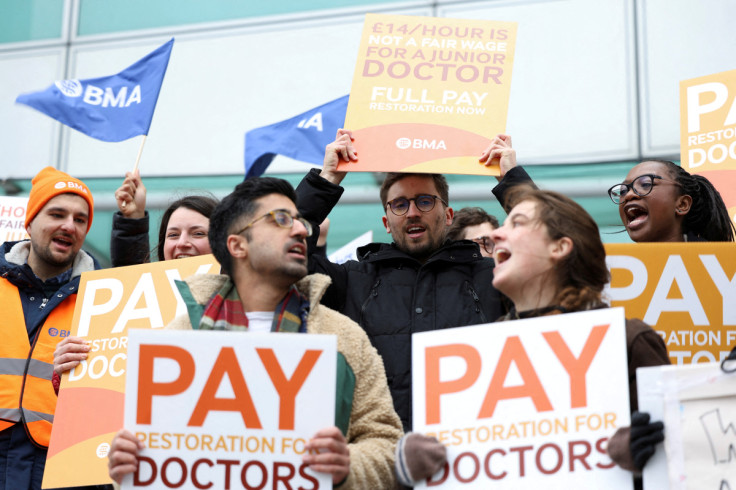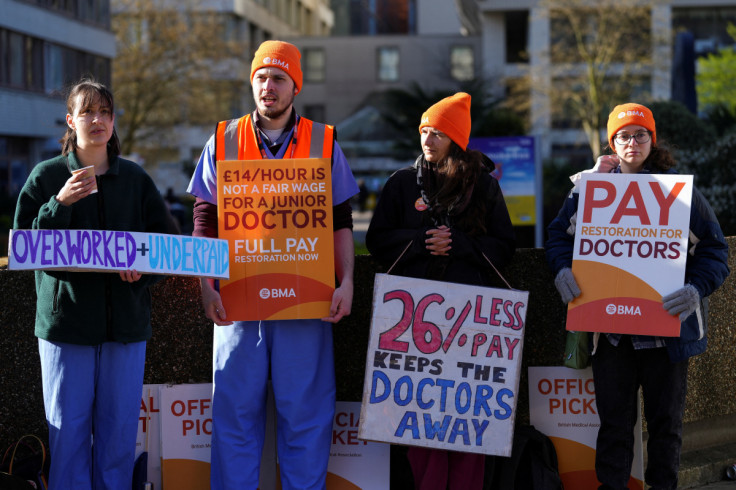Britain braces for 'unparalleled' disruption from doctors' strike
Junior doctors in Britain began a four-day strike over pay on Tuesday that is likely to cause unprecedented disruption to the state-funded National Health Service (NHS), prompting the government to warn of a risk to patient safety.

Junior doctors in Britain began a four-day strike over pay on Tuesday that is likely to cause unprecedented disruption to the state-funded National Health Service (NHS), prompting the government to warn of a risk to patient safety.
Tens of thousands of junior doctors -- qualified physicians who make up nearly half of the medical workforce -- are striking for pay rises better aligned with inflation, in a walkout that follows a three-day doctors' strike last month.
"This latest round of strikes will see unparalleled levels of disruption, and we are very concerned about the potential severity of impact on patients and services across the country," NHS England National Medical Director Stephen Powis said.
"We've also asked (hospitals) to reschedule procedures and outpatients as quickly as possible but this will take weeks to recover from," Powis told BBC Radio, adding that the NHS was working to ensure emergency services were kept intact.
The chief of the NHS Confederation, which represents organisations across the healthcare sector, told Sky News he expected up to 350,000 appointments to be cancelled during the four-day strike.
The strike is the latest to involve NHS staff, following walkouts by nurses, paramedics and others demanding rises that better reflect annual inflation running at more than 10%.
It comes as the NHS experiences one of its most severe crises in its 75-year-history, overwhelmed with some 7 million patients waiting for hospital treatment, severely affecting areas such as cardiovascular care.
British Prime Minister Rishi Sunak has made cutting hospital waiting times one of his major priorities amid eroding public satisfaction with an institution that has long been a source of national pride.
The British Medical Association (BMA), the union representing doctors, wants a 35% pay rise, arguing that members have suffered a 26% real terms cut in pay over 15 years.
The BMA has said the strikes by junior doctors, some of whom are very experienced, could be stopped if health minister Steve Barclay put a credible pay offer forward.
"Not only will the walkouts risk patient safety, but they have also been timed to maximise disruption after the Easter break," Barclay said in a statement.
He says the BMA's demands are unreasonable and would mean an increase of more then 20,000 pounds ($24,840) for some doctors.
The doctors have joined hundreds of thousands of other public sector workers who have gone on strike in Britain, including railway staff, teachers and civil servants.
Disputes in some sectors have been resolved in recent weeks.
($1 = 0.8052 pounds)
(Additional writing by Michael Holden;Editing by Andrew Cawthorne, Kate Holton and Alex Richardson)

Copyright Thomson Reuters. All rights reserved.





















